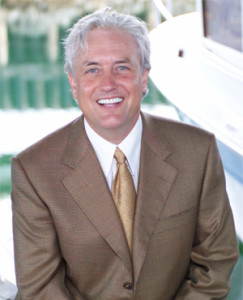- Calls to this hotline are currently being directed to Within Health, Fay or Eating Disorder Solutions
- Representatives are standing by 24/7 to help answer your questions
- All calls are confidential and HIPAA compliant
- There is no obligation or cost to call
- Eating Disorder Hope does not receive any commissions or fees dependent upon which provider you select
- Additional treatment providers are located on our directory or samhsa.gov
Whole Person Approach to Treating Anorexia

Contributor: Dr. Gregory Jantz, Founder of The Center • A Place of HOPE
When we say “whole person approach” to anorexia, what do we really mean? Whole person refers to all components that contribute to your life and, importantly, to your well-being: the emotional, physical, nutritional, spiritual, and relational aspects.
The Tangible and the Intangible
Specifically for those struggling with anorexia, “tangible” components include the food you eat, the clothes you wear and see other people wear, the things you use to adorn your home, and so forth.
“Intangible” components include the thoughts you have (especially as it relates to food), the words you use and hear others use, the effects of positive or negative words from others, your relationship with God, your emotional scars from past relationships, including heartbreak, verbal abuse, physical abuse and sexual abuse.
To effectively treat anorexia, true healing and recovery begin in earnest only after working through all of these issues – emotional wellness, environmental balance, relational healing, physical and nutritional health, spiritual renewal, and acceptance (and, ideally appreciation) of one’s body.
Anorexia and Fear
Anorexia is, simply stated, starving yourself to death. It comes from some obsessive fear, and a desperate desire to maintain control over that fear. The fear very often has very little to do with food. Fear of eating, or fear of becoming fat, is a substitute for another fear of which the anorexic feels unable to cope.
 The fear can be of failure, abandonment, intimacy, of sexuality itself. By controlling something within her power – the intake or denial of food – the anorexic gives herself the illusion that she is in control of her real fear.
The fear can be of failure, abandonment, intimacy, of sexuality itself. By controlling something within her power – the intake or denial of food – the anorexic gives herself the illusion that she is in control of her real fear.
Unless an anorexic can come to terms with the real issues that are causing that fear, it can be nearly impossible to break the power of the disorder. Anorexics still get hungry, of course, but their fear of fat causes them to control their hunger pangs. When their natural feeling of hunger is squelched, the anorexic experiences the exhilaration of control.
If this is you, you may even congratulate yourself for your willpower over food. You may even be disdainful of those around you who are overweight, deluding yourself to believe your pattern is the healthy alternative to becoming what you have convinced yourself you fear – being fat, ugly and unloved.
This can provide an overblown, enormous sense of self-pride knowing you will never look this way. The terrible irony is that, deep down, you suspect you already do, for a strong component of anorexia is the inability to see yourself clearly.
Treating Anorexia
Hence, to effectively treat the anorexic, it is vital to go back and decouple all the contributors of their life – their perceptions, value judgments, relationships, what they believe to be right and wrong, the role of affection in their upbringing, whether there was a loving and caring household or a cold and dispassionate one, and whether they have experience emotional, physical or sexual abuse.
 During treatment, if these issues exist, they are often discovered in early childhood, but also can be profoundly present in adolescence and teen years as well. Whole person treatment spends much time with the anorexic helping them to become honest with themselves, accepting who they are, working through past trauma, if present, and being open to the wise counsel and help offered by others. Importantly, there is much work on the acceptance of one’s body.
During treatment, if these issues exist, they are often discovered in early childhood, but also can be profoundly present in adolescence and teen years as well. Whole person treatment spends much time with the anorexic helping them to become honest with themselves, accepting who they are, working through past trauma, if present, and being open to the wise counsel and help offered by others. Importantly, there is much work on the acceptance of one’s body.
Anorexia is dangerous. Left untreated, it is one of the most deadly mental health issues we treat. With experienced professionals treating the anorexic with proven techniques and compassion, and addressing the whole person in their approach to care, the anorexic can not only recover but go on to lead a healthy, happy and balanced life.
Recovery takes work, and like many other addictions and mental health issues, it may require a lifetime of ongoing aftercare. But the rewards are absolutely worth the effort.
 About the Author: Dr. Gregory Jantz is a best-selling author of 30 books. He is a go-to media source expert for a range of behavioral-based afflictions, as well as drug and alcohol addictions. Dr. Jantz has appeared on CNN, FOX, ABC, CBS, and has been interviewed for the New York Post, Associated Press, Family Circle, and Women’s Day. He is also a regular contributor to The Huffington Post and Psychology Today blogs. Dr. Jantz is a sought after speaker, appearing internationally. Dr. Jantz founded The Center • A Place of HOPE to help people transform their lives.
About the Author: Dr. Gregory Jantz is a best-selling author of 30 books. He is a go-to media source expert for a range of behavioral-based afflictions, as well as drug and alcohol addictions. Dr. Jantz has appeared on CNN, FOX, ABC, CBS, and has been interviewed for the New York Post, Associated Press, Family Circle, and Women’s Day. He is also a regular contributor to The Huffington Post and Psychology Today blogs. Dr. Jantz is a sought after speaker, appearing internationally. Dr. Jantz founded The Center • A Place of HOPE to help people transform their lives.
We at Eating Disorder Hope understand that eating disorders result from a combination of environmental and genetic factors. If you or a loved one are suffering from an eating disorder, please know that there is hope for you, and seek immediate professional help.
The opinions and views of our guest contributors are shared to provide a broad perspective of eating disorders. These are not necessarily the views of Eating Disorder Hope, but an effort to offer discussion of various issues by different concerned individuals.
Last Updated & Reviewed By: Jacquelyn Ekern, MS, LPC on March 8, 2016
Published on EatingDisorderHope.com

The EatingDisorderHope.com editorial team comprises experienced writers, editors, and medical reviewers specializing in eating disorders, treatment, and mental and behavioral health.

